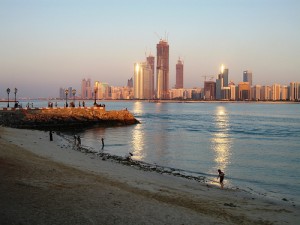
A shortage of qualified retail bankers in GCC countries like Abu Dhabi could mean opportunities for expats.
Retail banks in GCC countries like the UAE and Abu Dhabi face a shortage of qualified staff, even as they try to expand regionally. According to a Reuters report, they are struggling to find and retain qualified talent, since many locals prefer to work either government or investment banking jobs.
Could this lead to an upswing in expat employment?
In the Gulf, the financial sector has traditionally attracted large numbers of expat workers. This is especially true at the executive level, where western bankers are often able to bring established client bases with them into new firms.
As Peter Greaves, an Executive Vice President at DHR International told Reuters:
Competition is tough for private bankers and wealth management professionals in the Middle East, but it’s an easy hire for most firms to justify. If someone can bring a decent percentage of their client book across with them, they’re covering their own costs.
There are obstacles, however. The tallest is the constant tension in Gulf countries between local businesses (which are happy to hire expats) and governments (which want to cut down on the number of foreign workers to reduce unemployment).
Kuwait, for example, has slashed the number of work visas it issues: 90,000 in 2011 down from 179,000 just four years earlier. Saudi Arabia wants to cap expat workers at 20% of the population.
But businesses treasure their foreigner employees, who they often see as both more skilled and harder working than locals. On top of that, expat-phobic governments need skilled labor to transition away from oil-based economies. Even Kuwait–so proud of reducing its work permit numbers–is considering a deal that would provide skilled expat workers with citizenship (!) if they work in certain industries.
Overall, the time still seems ripe for expats to look for retail banking and wealth management jobs in the Gulf. There is certainly demand now and it is likely to grow as the existing banks expand. They just have to hope local political pressure doesn’t increase.